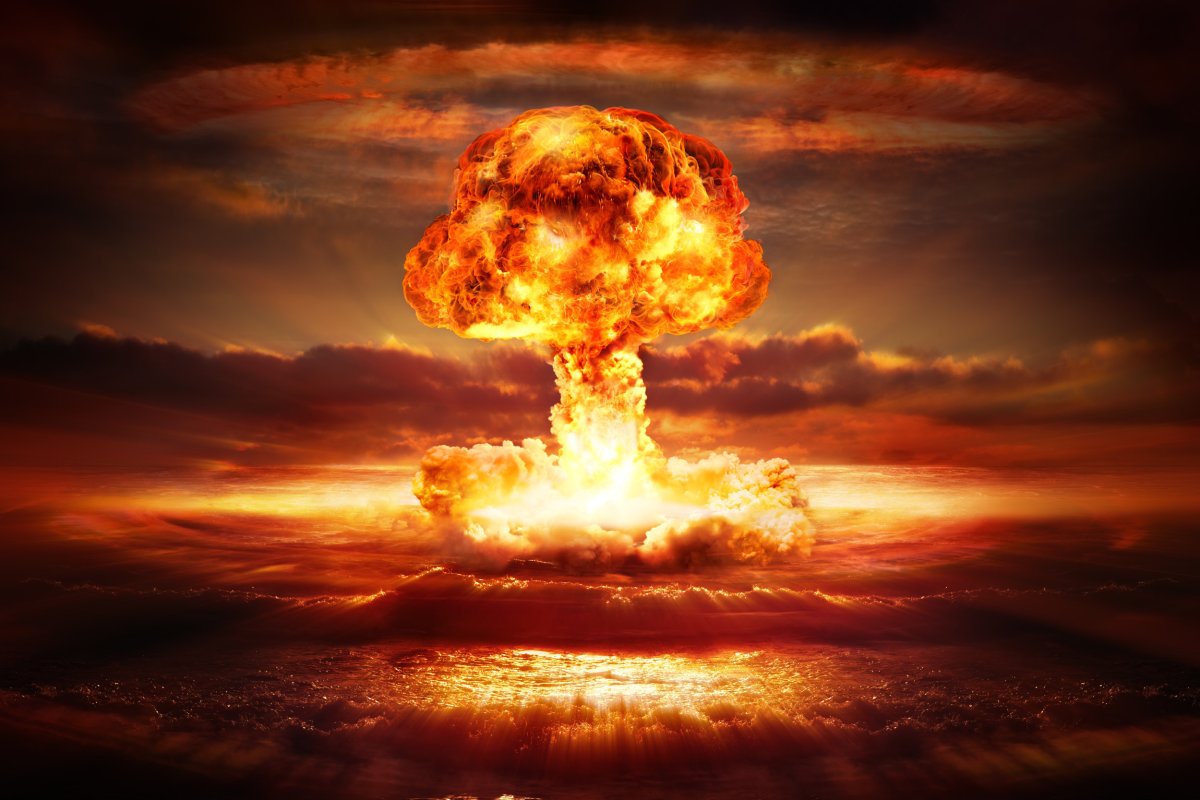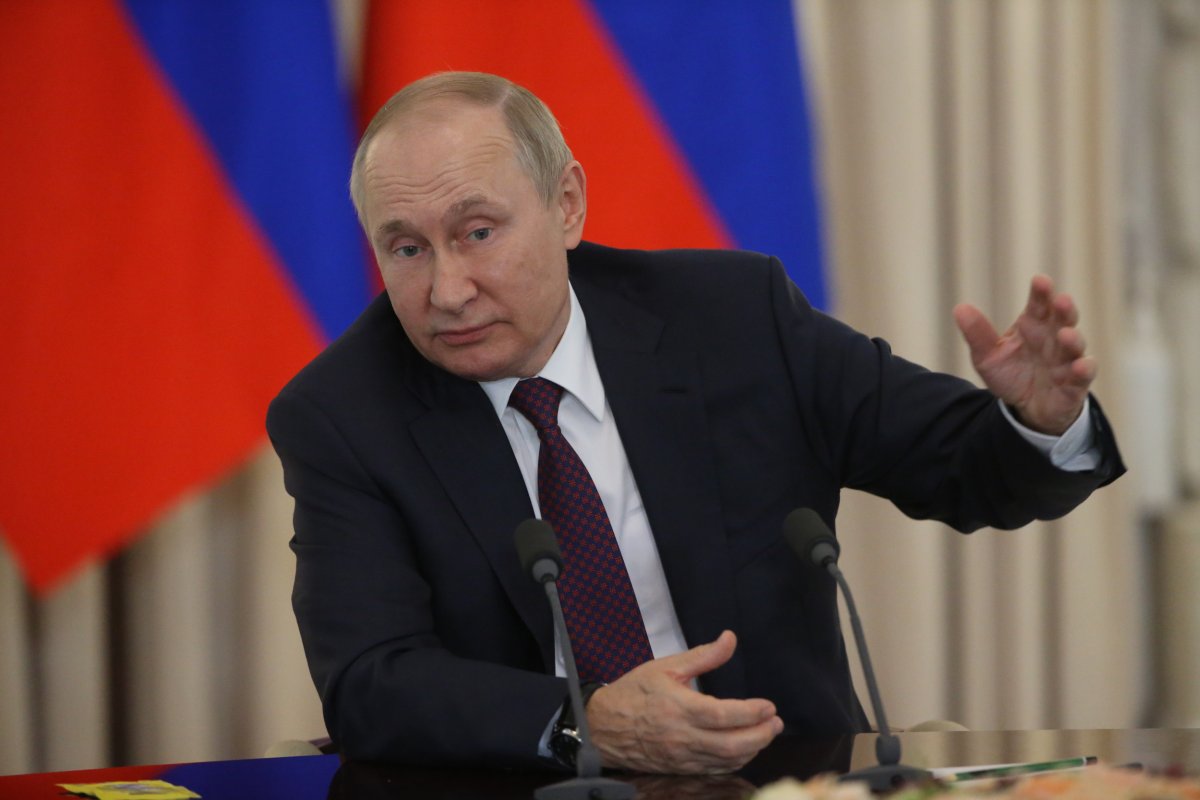With Russia's ongoing invasion of Ukraine and Russian President Vladimir Putin's rhetoric surrounding the possible use of nuclear weapons, the fear of a nuclear war has crept back into public consciousness.
This new concern has led experts to make predictions as to the likelihood of a nuclear war, with the estimates ranging from 10-20 percent, 16.8 percent or even 20-25 percent, according to The Brookings Institution, a non-profit public policy organization based in Washington, D.C.
A true nuclear war has never happened - so how can we accurately calculate the probability of it happening in the future?

The frequentist approach to forecasting uses past occurrences of events to predict the likelihood that those events will occur in the future. This isn't helpful in this case, Stephen Woodcock, a statistician at the University of Technology Sydney, told Newsweek, as nuclear weapons have only been used in warfare twice, both times by the U.S. against Japan at the end of World War II.
"A frequentist interpretation is certainly meaningless here for two reasons. Firstly, the sample size is way too small to accurately predict the expected frequency of something which so rarely happens. Secondly, a frequentist interpretation relies on 'long run averages' such as a coin, which can be flipped ad infinitum. This obviously isn't the case, given the non-reproducibility here," he told Newsweek.
The alternative interpretation of probability reasoning is known as Bayesian, Woodcock said. This is built on subjective arguments based on how much credence is given to various statements. For example, if a coin has been flipped (but not observed), a frequentist should say that it either landed on heads 100 percent of the time or tails 100 percent of the time, but you don't know which, whereas a Bayesian could still have a 50 percent belief in the statement that the coin landed heads, wrapping up the person's uncertainty about the outcome in the statement.
"Interestingly, where people have attempted a Bayesian-type reasoning to estimate these probabilities, they're all over the shop. Famously, JFK is reported as being up to 50 percent confident of nuclear war around the time of the Cuban Missile Crisis, whereas others in his team stated they never believed [there was] more than [a] 1 percent chance," Woodcock said.
"I don't think it's possible to calculate the probability (or predict the likelihood) of nuclear war. There are too many factors at play and not a sufficient amount of information," Amy J. Nelson, a David M. Rubenstein fellow in the foreign policy program at The Brookings Institution, told Newsweek. "You can, of course, calculate the probability of anything, using a few assumptions. But these calculations often reflect bias and, in the case of nuclear war, just aren't meaningful."
"A better approach is to identify pathways that can lead to war and then take steps to mitigate. If we think Putin is losing poorly and becoming increasingly desperate, for example, we would want to maintain dialogue, amp up diplomacy efforts even, and offer an off-ramp," she said.

John P. Harden, an assistant professor of political science at Ripon College, told Newsweek that predicting nuclear war involves considering things like safety protocols, the degree of control a single individual has over the decision to launch nuclear weapons, geopolitical tensions, and how much different leaders value physical survival.
"Personally, I would consider whether the leader people are concerned about using a nuclear weapon has singular control over their country's nuclear arsenal," Harden said. "If they do, I would next consider whether they are lacking in empathy for others, are narcissistic enough to strongly desire a reputation that survives a broad test of time, and are closer to death (older in age or ill). When people get older, they tend to adopt shorter time horizons and behave in more risky ways if they are looking to build a legacy. While Putin meets many of these criteria, I am not sure how much control he has over the nuclear arsenal of Russia."
What is most likely, said Emily Channell-Justice, director of the Temerty Contemporary Ukraine Program at the Harvard Ukrainian Research Institute, is a nuclear attack by Russia on Ukraine. Ukraine cannot respond equally, because it does not have nuclear weapons.
"The only thing that will lead to 'nuclear war' is if another nuclear power responds to a Russian attack with a nuclear weapon," she told Newsweek.
"Experts have pointed out that a Russian move toward a nuclear strike will require extensive preparations, so we will know if a nuclear strike is in the works. Others have also pointed out that there are a few other ways to ramp up Russia's attacks before a nuclear option. For instance, we haven't yet seen the use of chemical and biological weapons. These could cause extensive damage, but they would still be a step back from a nuclear attack."
Recent reports have said that U.S. intelligence is assessing the possibility of a Russian nuclear strike on a variety of scales, but this does not indicate that a nuclear strike is imminent.
"The doctrine of Mutually Assured Destruction may soon be tested. I hope it won't be, I don't think we can count anything out where Putin is concerned," Channell-Justice said.
There aren't many things less funny than Vladimir Putin attempting to joke about nuclear war pic.twitter.com/AcqYZs5fBe
— Francis Scarr (@francis_scarr) October 27, 2022
So while it is near impossible to calculate the likelihood of a nuclear war, experts agree that any chance of it occurring is too high.
"The logic of nuclear 'deterrence' means that any nuclear detonation has a very good chance of escalating into a full-scale nuclear exchange between two powers, or a general global nuclear war," Tom Vaughan, a nuclear politics researcher at Aberystwyth University, told Newsweek.
"Unless nuclear-armed states can be very confident that a nuclear detonation on their territory was an accident or an otherwise isolated incident, deterrence doctrine is going to provide a very strong incentive to launch their own weapons in response - 'use them or lose them'. So structurally speaking, a single nuclear detonation can pull us all into a general nuclear war very quickly. Whatever numerical 'risk' we might try to assign to general nuclear war - it's too high to be acceptable."
Uncommon Knowledge
Newsweek is committed to challenging conventional wisdom and finding connections in the search for common ground.
Newsweek is committed to challenging conventional wisdom and finding connections in the search for common ground.
About the writer
Jess Thomson is a Newsweek Science Reporter based in London UK. Her focus is reporting on science, technology and healthcare. ... Read more





